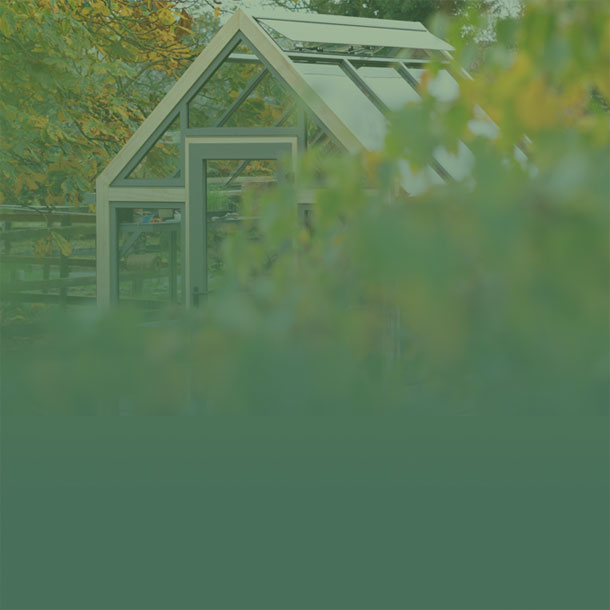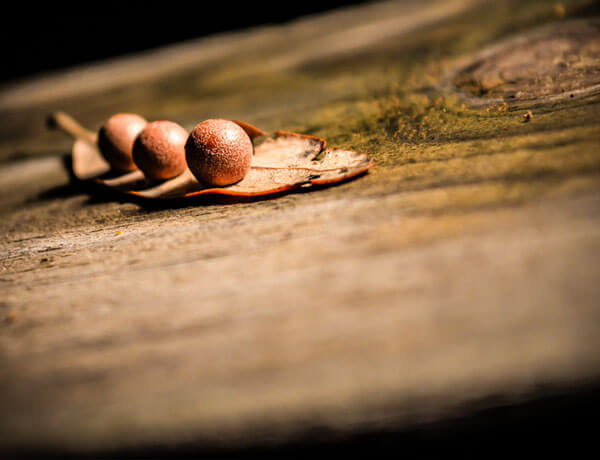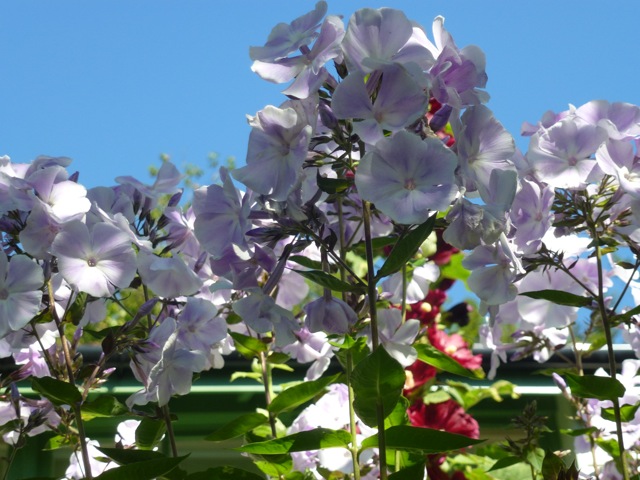-

Cottage Gardens
The words ‘cottage garden’ conjure up an idyllic image involving roses round the door of a picturesque thatch cottage with towering hollyhocks and delphiniums (or something similar) either side of a brick path that leads to a picket gate. It’s all very romantic, always spring or summer – and always sunny.
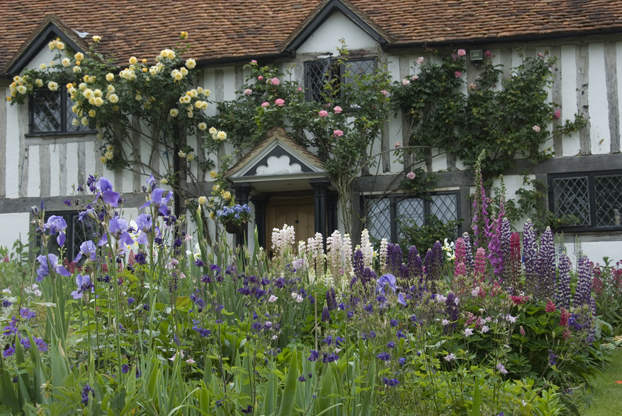
It’s a bit of a dream idea, but the absence of the actual thatched cottage doesn’t mean that the wish for a cottage garden need be abandoned – remove the chocolate box setting and it is basically an informal style of mixed planting that can be adapted to many gardens.
One of the most appealing aspects of the cottage garden idea is that it does not require design skills – just a love of plants.Of course, an artistic eye does help, but more than any other type of garden it is uncontrived, with its mix of practical and decorative. There are no rules in cottage gardens – if you like a plant and can find a spot for it, then in it goes!
The Origins
To understand a cottage garden, it helps to think back to its origins. Farm labourers lived in tied cottages where they grew much of their own food to supplement their meagre wages. Alongside the family pig and a few chickens, vegetables and fruit were all important providing the family with most of its food. And with little in the way of medical help, the women grew herbs to treat family illnesses. In medieval times these gardens were utilitarian in the extreme, but flowers gradually crept in. Sometimes they were grown from seeds or cuttings from the ‘master’s garden’, flowering herbs were distributed by the monasteries, and seeds or plants were bartered with neighbours or collected from the wild.
The charming rustic containers, plant supports and fences that we associate with this style of garden were a matter of economy rather than aesthetics. Old troughs, baths and buckets had a second life as planters, bean poles and plastics could be gathered from the woods and hedgerows and picket fences were inexpensive boundaries. Think of the cottage garden as a marriage of ‘grow your own’ with ‘make do and mend’.
Creating your own Cottage Garden
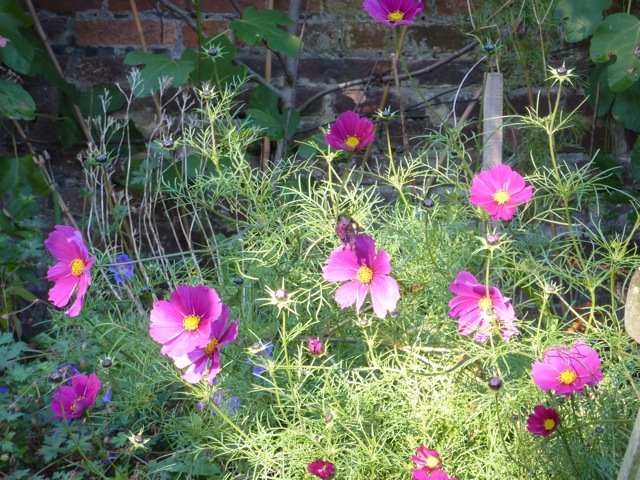
Cottage Garden Boundaries
Informality is the key here - as with all other aspects of cottage gardening. If you have an existing fence or wall that is rather stark or very uniform, t...
More »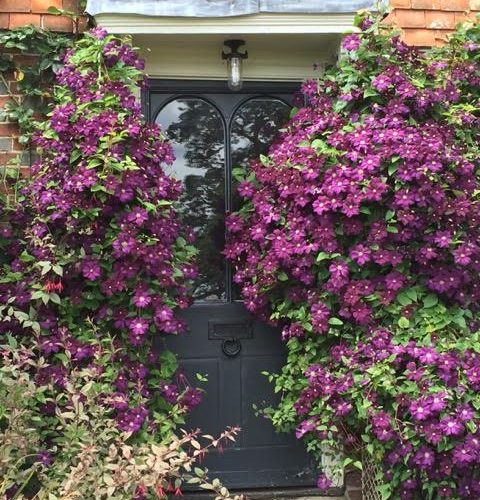
Cottage Garden Climbers
Gardens are more than horizontal spaces, the verticals are just as important, especially in a cottage setting. Plant climbers to festoon walls, scramble ...
More »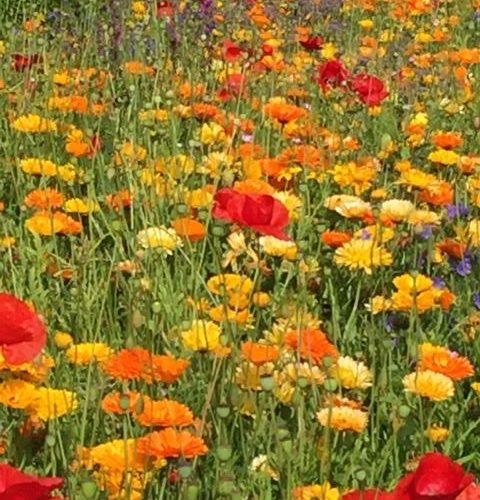
Cottage Garden Flowers
Cottage Garden Perennial Flowering Plants Perennials are the backbone of the cottage garden border – the flowers that reliably come up year after year an...
More »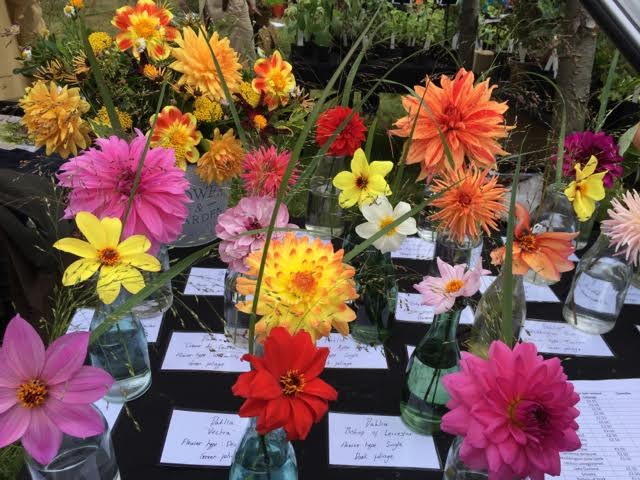
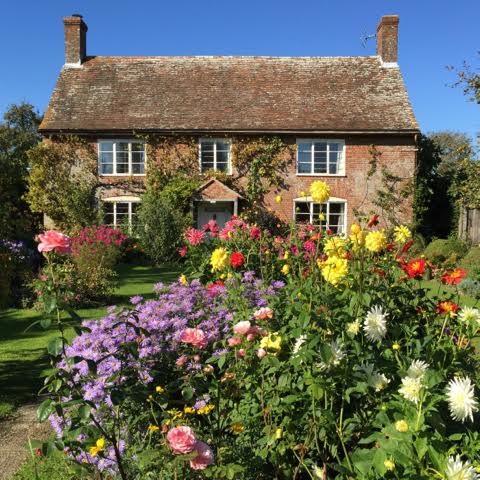
Cottage Garden Paths
The traditional cottage garden path was made from old bricks bedded into sand – it was all a bit wonky and plants would self seed prettily into the space...
More »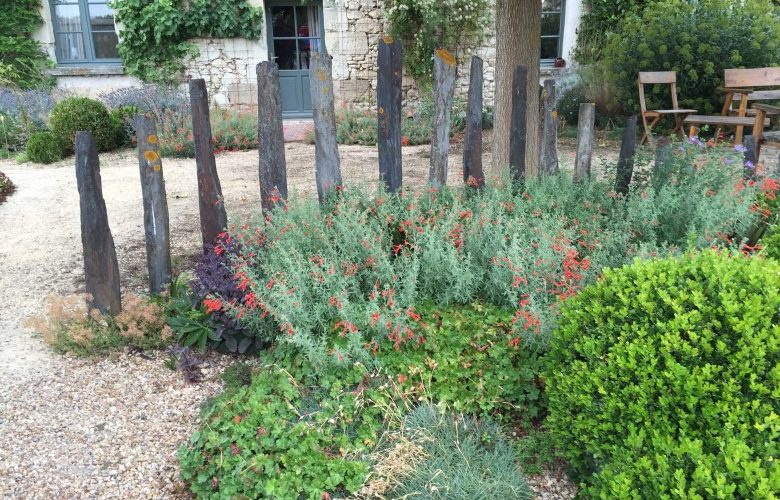
Cottage Garden Plant Supports
Wigwams, obelisks, pergolas and arches add interest and beauty to the garden. Once again, it is important to take your surroundings into account – twig...
More »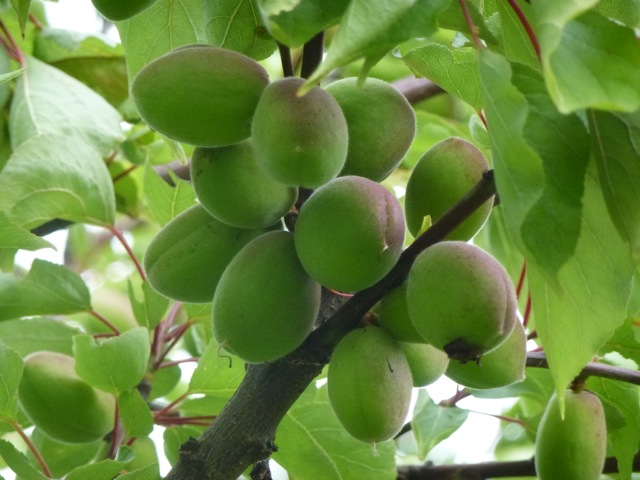
Cottage Garden Trees & Bushes
Cottage garden trees are usually productive – apple, pear, plum, greengage, damson, cherry, mulberry, quince and medlar are all ideal and dwarfing root s...
More »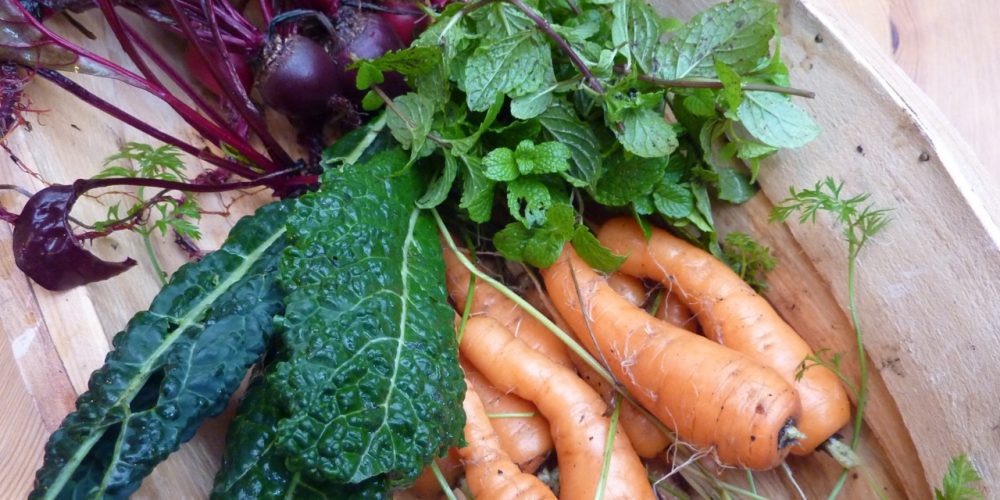
Cottage Garden Vegetables
If the garden is large enough to have its own dedicated vegetable patch, its cultivation is really a separate subject, but you can grow crops that are ...
More »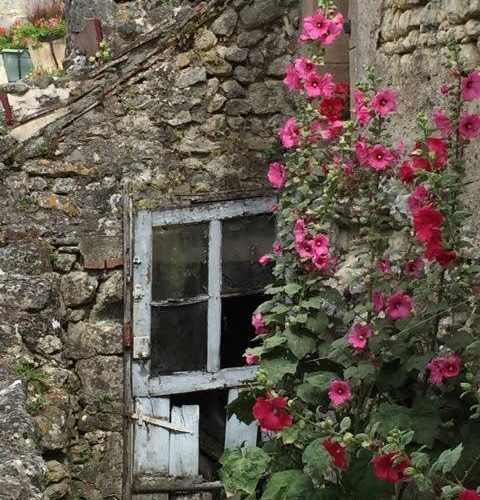
Furnishing the Cottage Garden
Originally, cottage garden ‘furniture’ consisted mainly of stuff from indoors that had seen better days and was brought outside to slowly collapse. Pot...
More »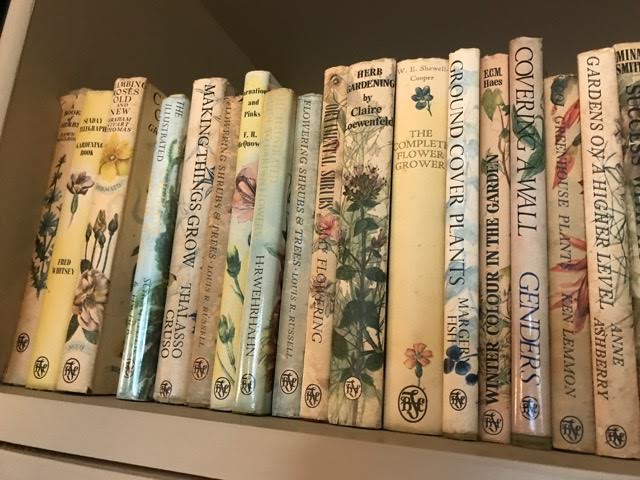
The Marvellous Margery Fish and her Cottage Garden
I’ve been collecting gardening books for as long as I’ve been gardening, which probably explains why I have an entire wall of books on anything garde...
More »

